“Alexandra, I need to talk to you!”
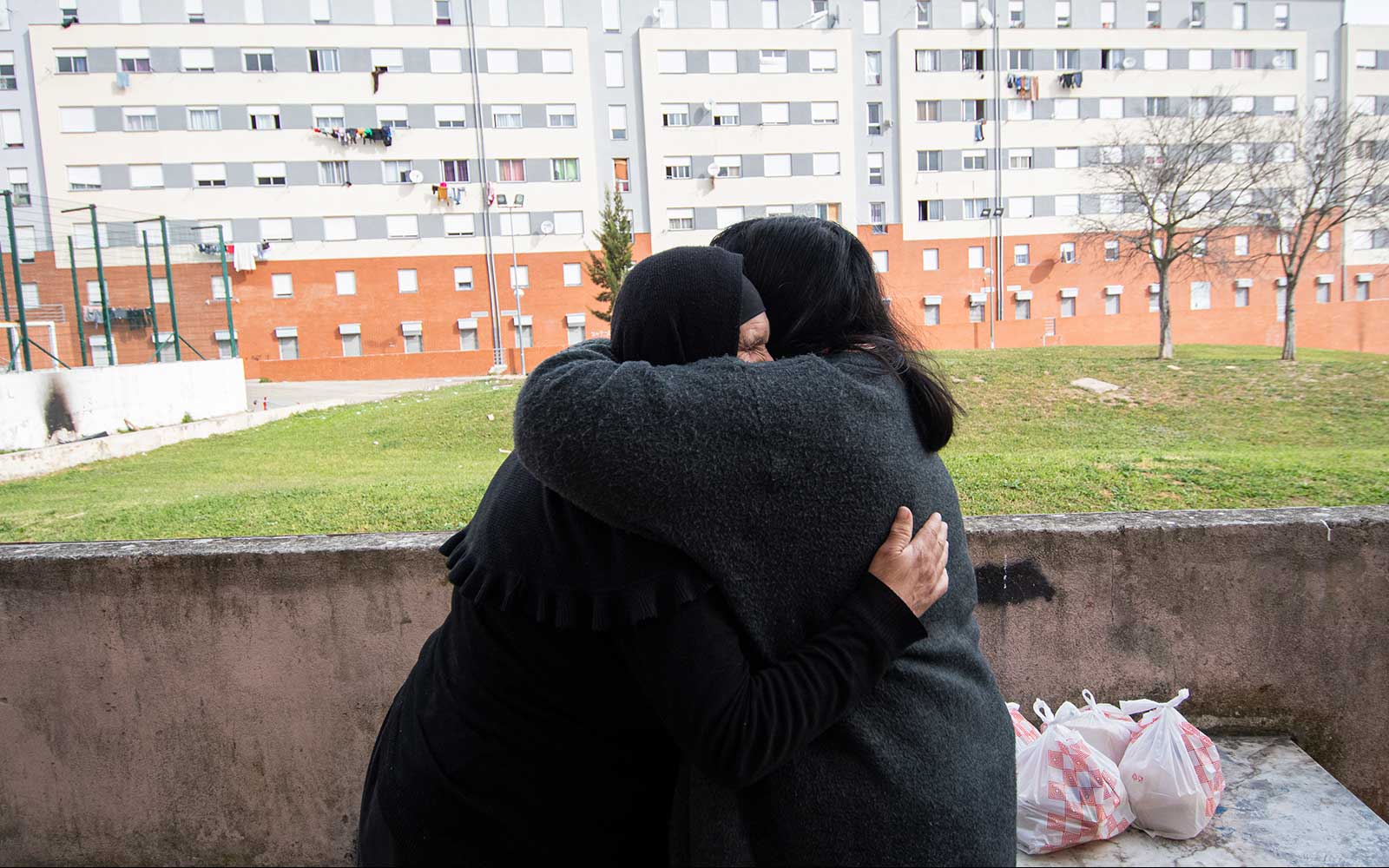
All you have to do is cross the street and you start hearing the words over and over again “Alexandra, I need to talk to you!” Either because the Town Hall doesn’t answer house calls, or because it’s time for a visit, or because they need to push an appointment with the social worker, or something else. The calls for help come from the windows of the buildings in the Alfredo Bensaúde neighbourhood, in Lisbon. But also face to face, on the street, at the café or just around a street corner.
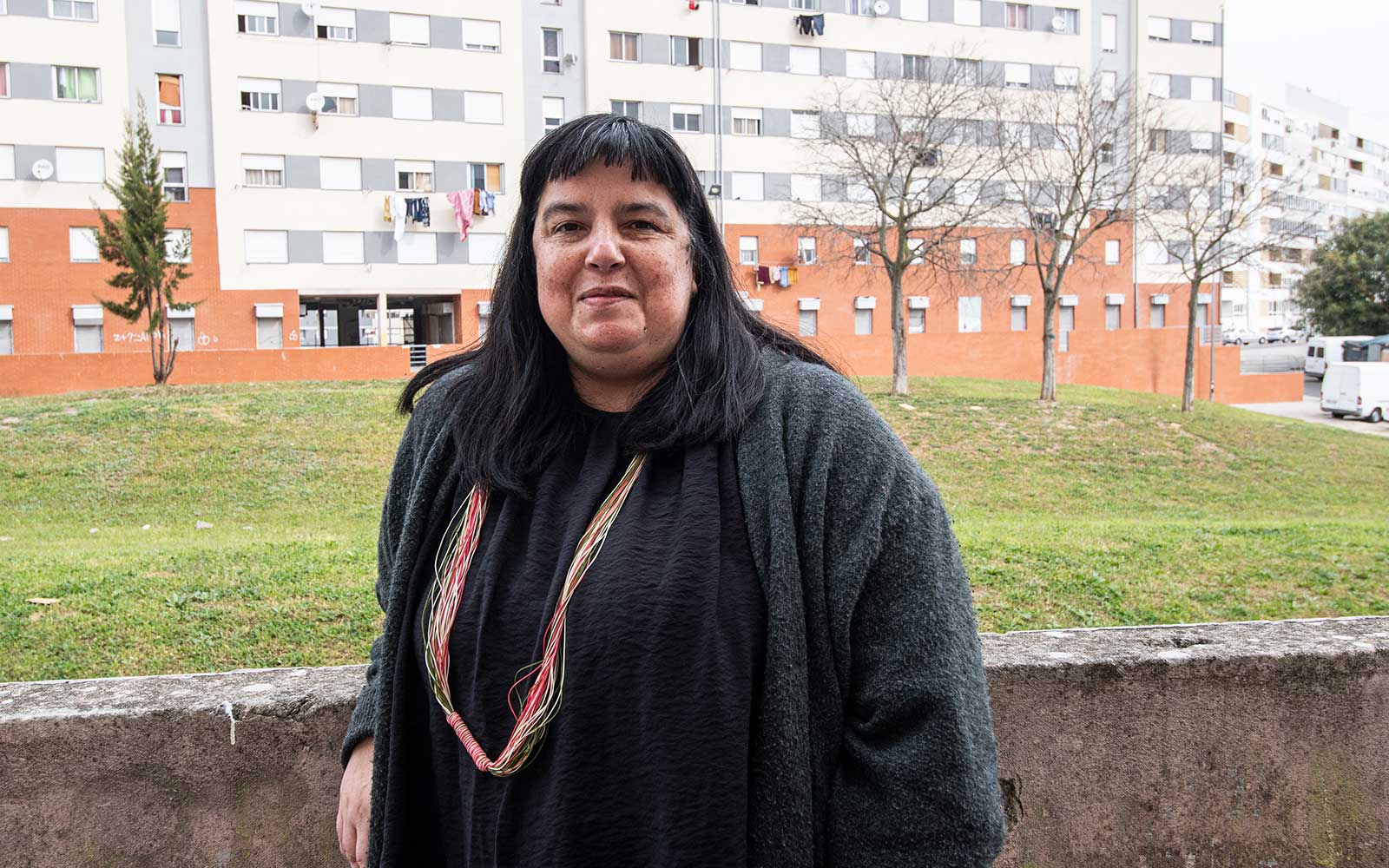
“The kid is three years old and doesn’t use nappies anymore. You have to get me a place at day-care!” Alexandra listens to everything carefully. “We have to take care of the RSI. I’m at my mother’s and they won’t give it to me…” Alexandra processes everything. “Your mother will start receiving her pension…” It’s a never-ending thread, and it’s usually very tangled.
For several years now, Alexandra Alves Luís has been a kind of jack of all trades in the neighbourhood. She listens, collects, brings, schedules, reschedules, asks questions, requests papers, fills in forms, objects, manages conflicts, finds solutions… she has plenty of work on her plate, but it’s the life she has chosen and she works with remarkable commitment.
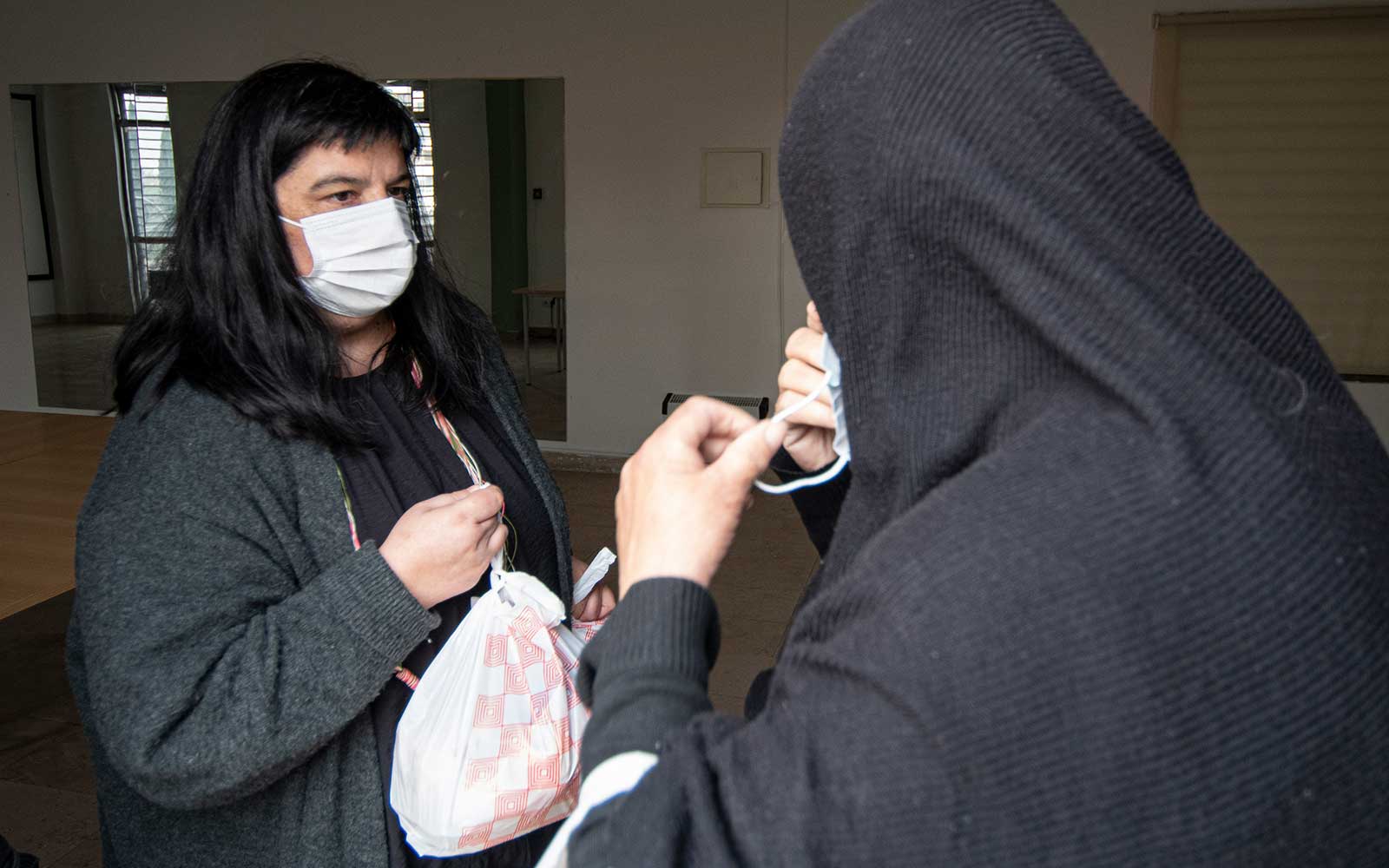
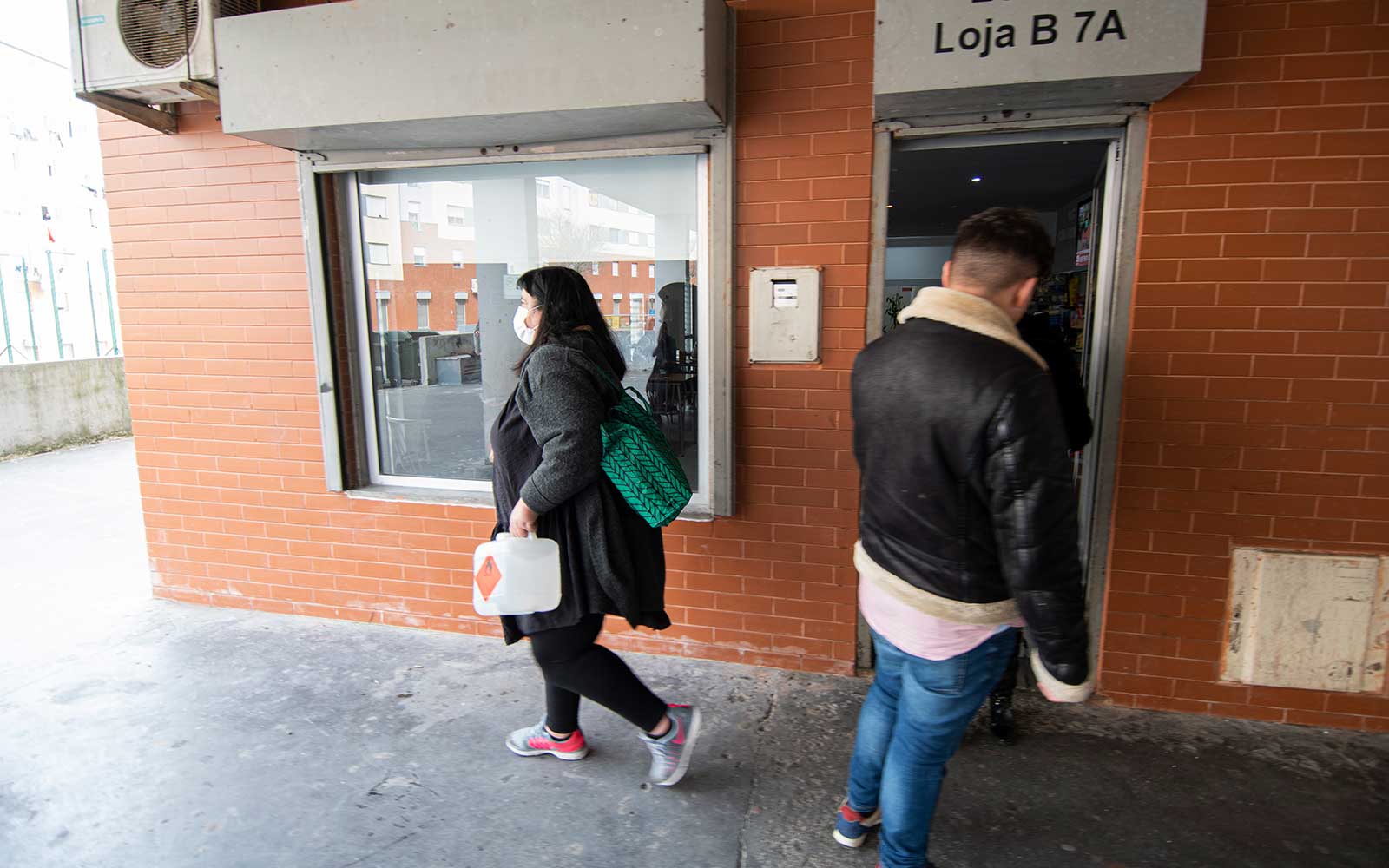
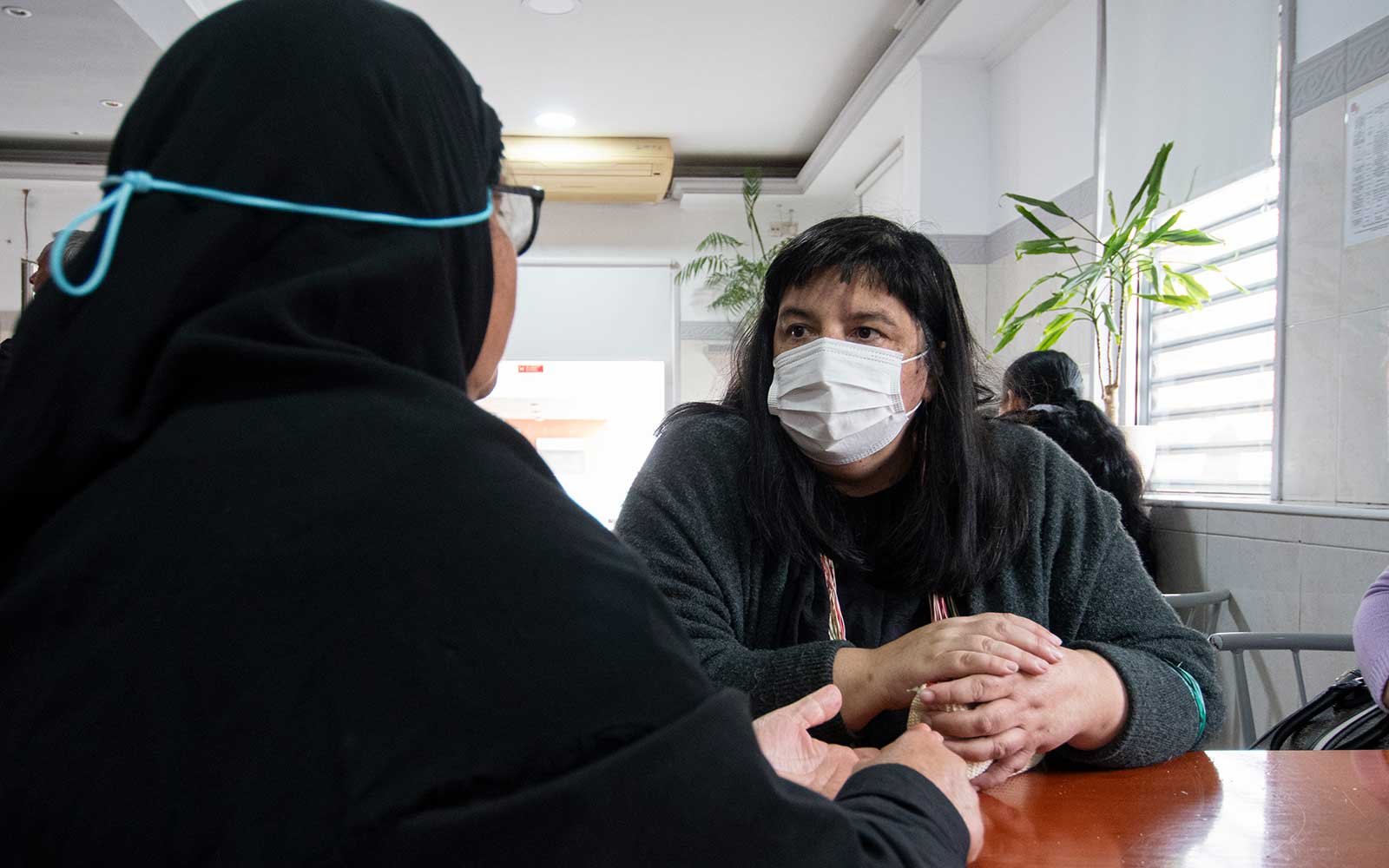
In that territory, she says, the Domiciliary Support Service is nothing more than a mirage. Her workload only increased with the arrival of the pandemic. In addition to the elderly population who needed to be fed and medicated even more than before, Alexandra had to deal with requests for help from other communities in the neighbourhood – Hindu and Roma – who saw their incomes plummet, children who didn’t want their parents vaccinated and parents who couldn’t afford to have their children attend school remotely. More threads to unravel.
With what she had, Alexandra couldn’t reach everyone. How could she distribute food with the Women Without Borders Association (of which she is a co-founder) if only one of the volunteers had a two-seater car with no boot?
Bensaúde got closer
The news that the Calouste Gulbenkian Foundation had opened up applications to help civil society associations strengthen their response capacities during pandemic times was perfect news. She applied to the Gulbenkian Cuida initiative with the Bensaúde + Perto project – asking for support to purchase a van.
She raised other financial donors and purchased the means of transportation she needed. What she didn’t expect was the outcome. Instead of supporting 70 people ( and 50 family members), she managed to reach around 400 people and, on top of everything else (filling out Covid forms, printing certificates and all the things we’ve already mentioned), she even managed to do things she couldn’t even imagine, like taking elderly people to appointments and to get vaccinated, or taking homework from school to pupils who don’t have a computer, and then back to school.
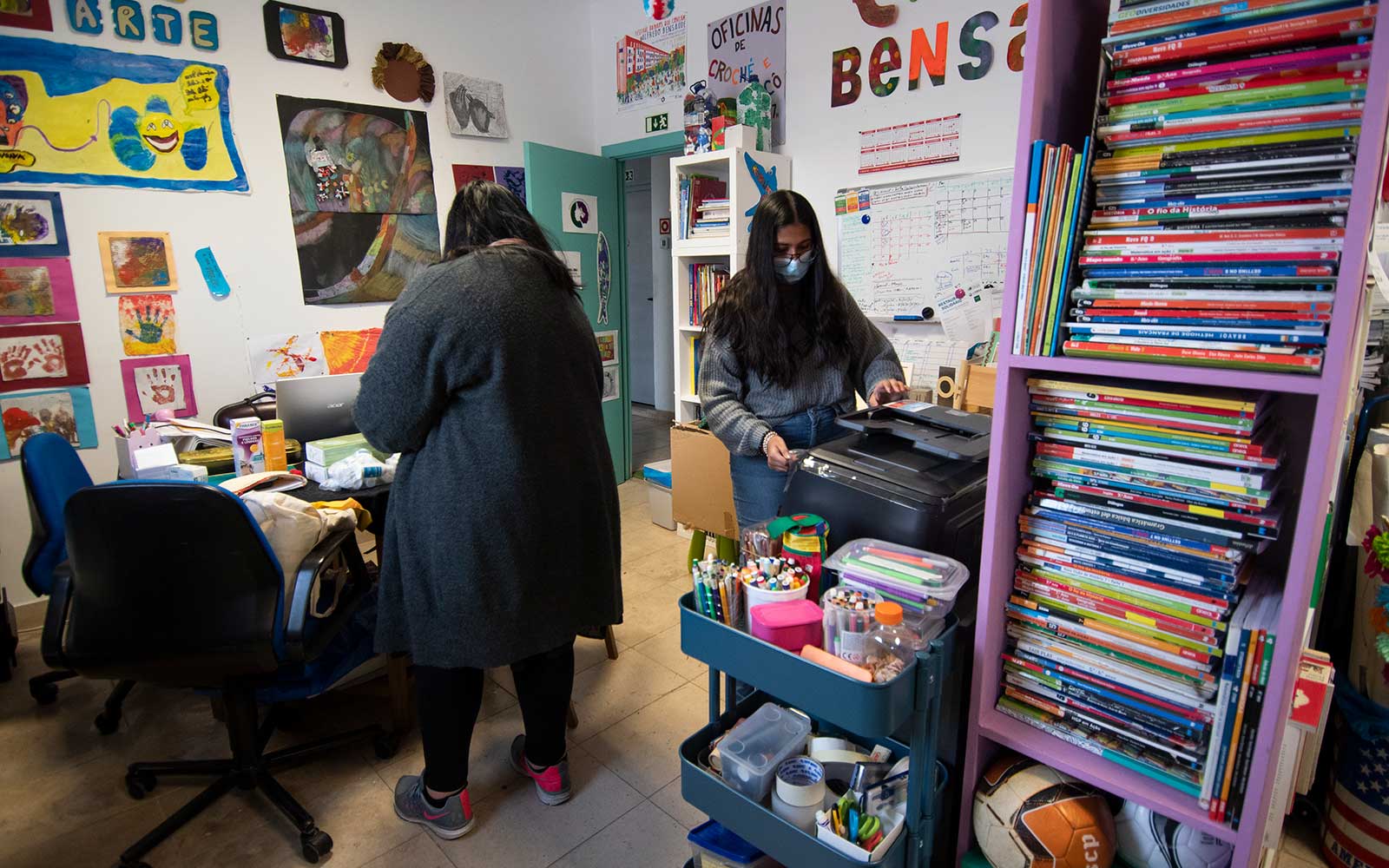
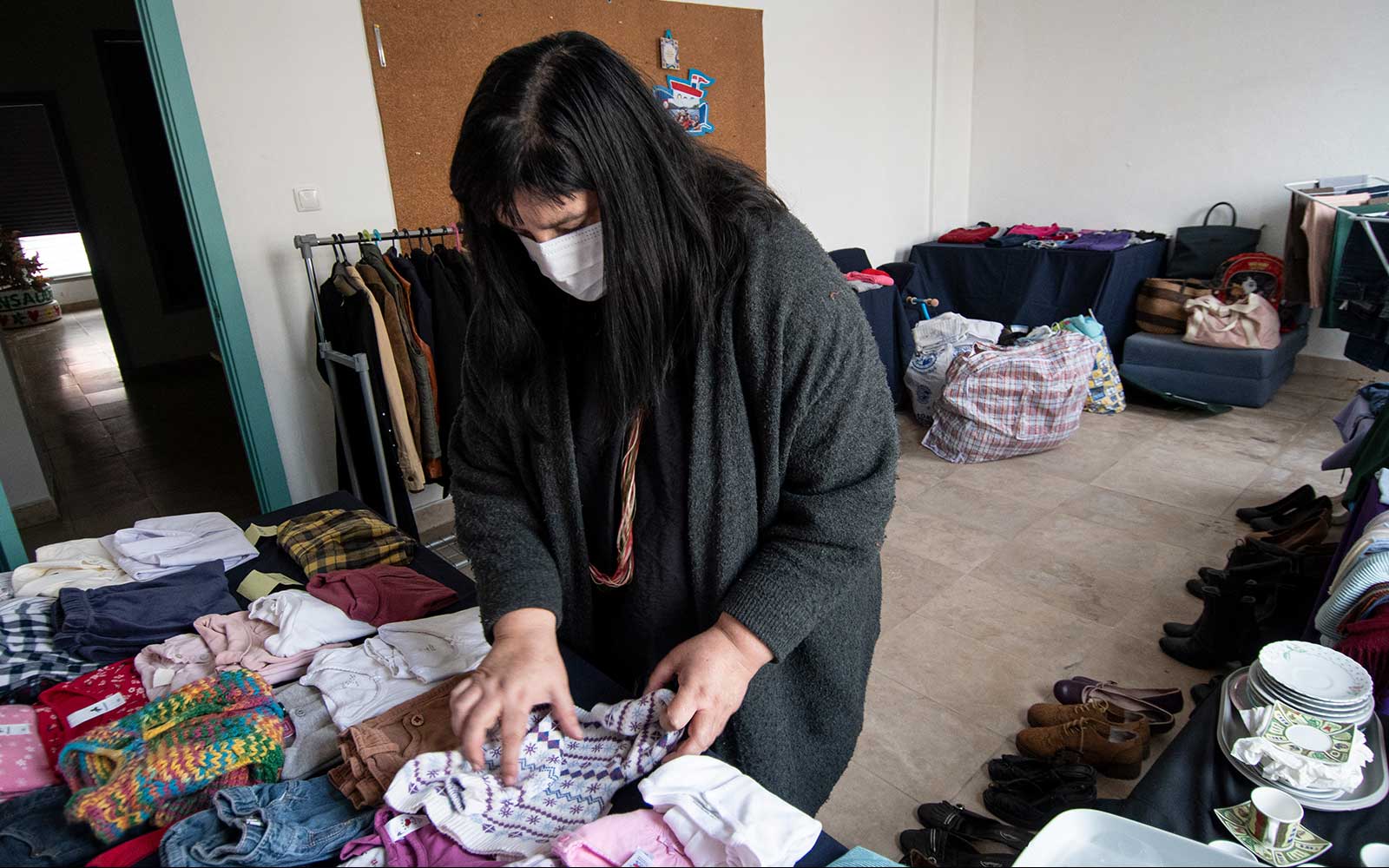
She taught the basic rules of self-protection, handed out masks and alcohol gel. “My grandmother knew she had to wear a mask, but didn’t know she needed to change it,” says Nandini Rangi, the granddaughter of Moti Bai, the matriarch of the Hindu community who volunteers at the Association. Now 92, Moti Bai was born in Diu and lived in Mozambique before settling in Lisbon (first in Quinta da Vitória, then resettled in Bairro Alfredo Bensaúde). Unlike her children and grandchildren, she barely speaks Portuguese. Nandini, her 20-year-old granddaughter, translates. The grandmother repeats several times, in Portuguese, “thank you” for the support that the Gulbenkian Foundation has given her through Alexandra.
We met at the Jai Ambe temple, which Moti Bai has set up on the ground floor of the building and where many women, widows, meet to thank Durga (protective goddess, to whom the temple was dedicated), Ganesh, Hanuman, Parvati, Shiva, Vishnu, Krishna, Dharma and… Our Lady of Fátima, who welcomed them in Portugal.
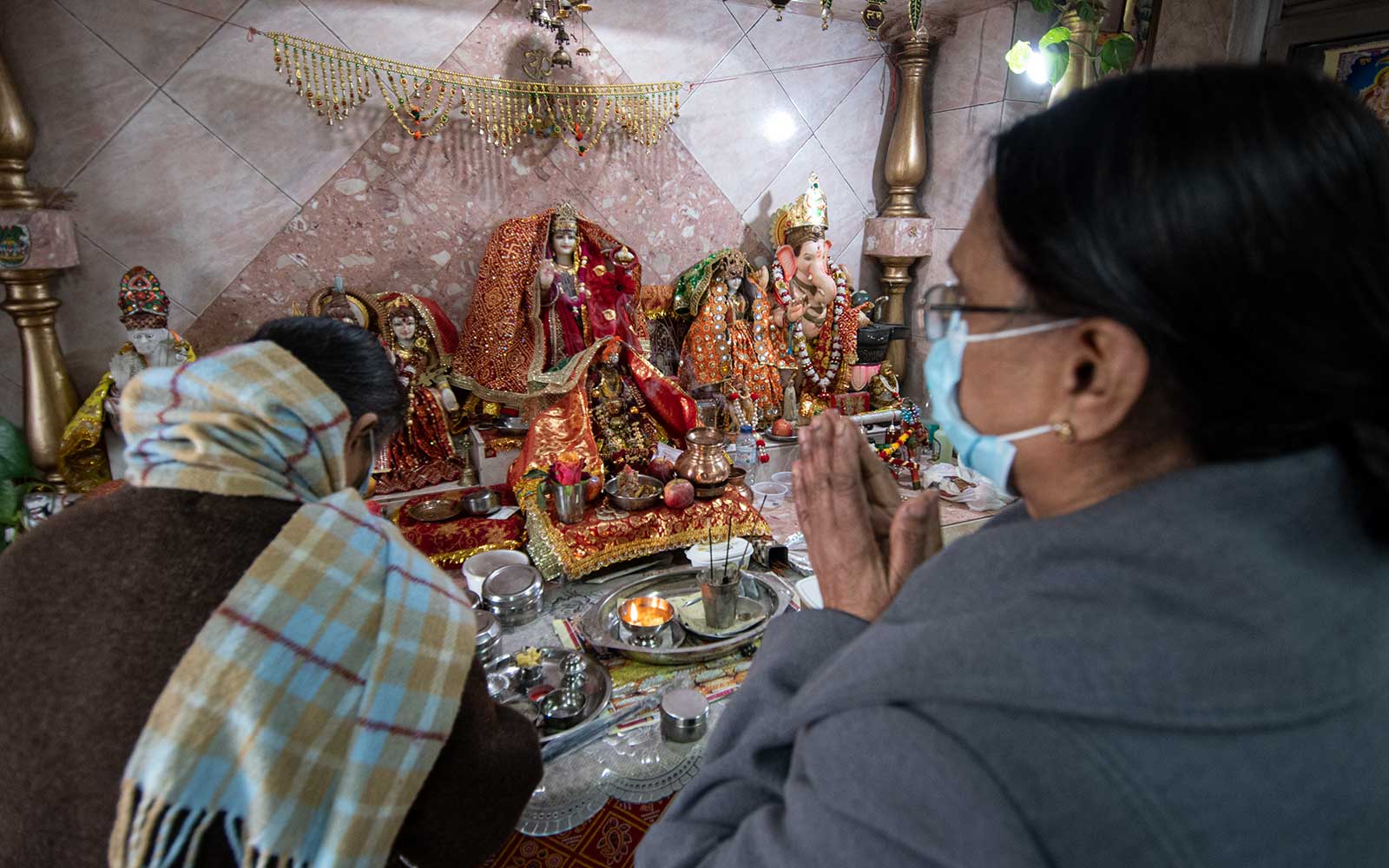
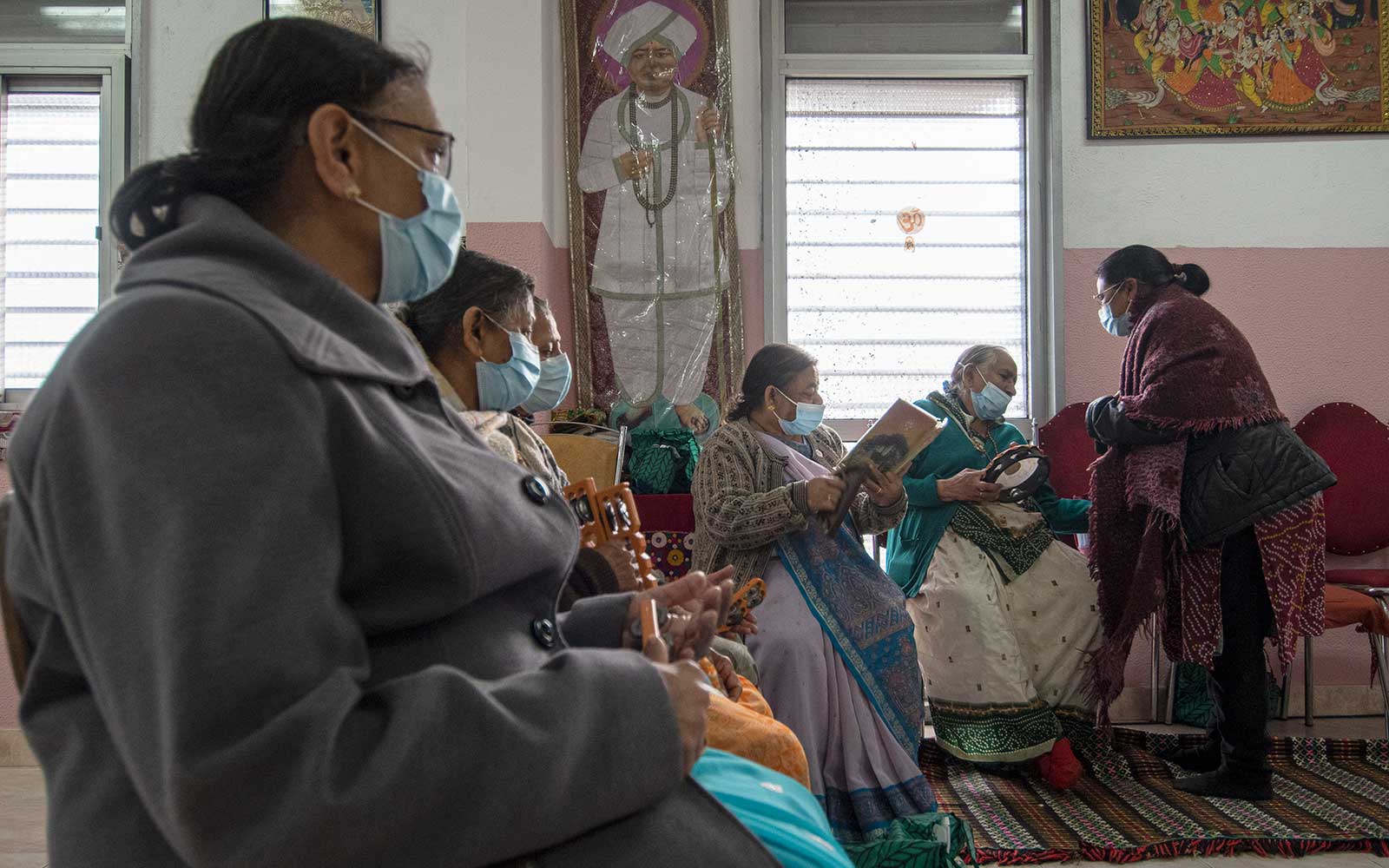
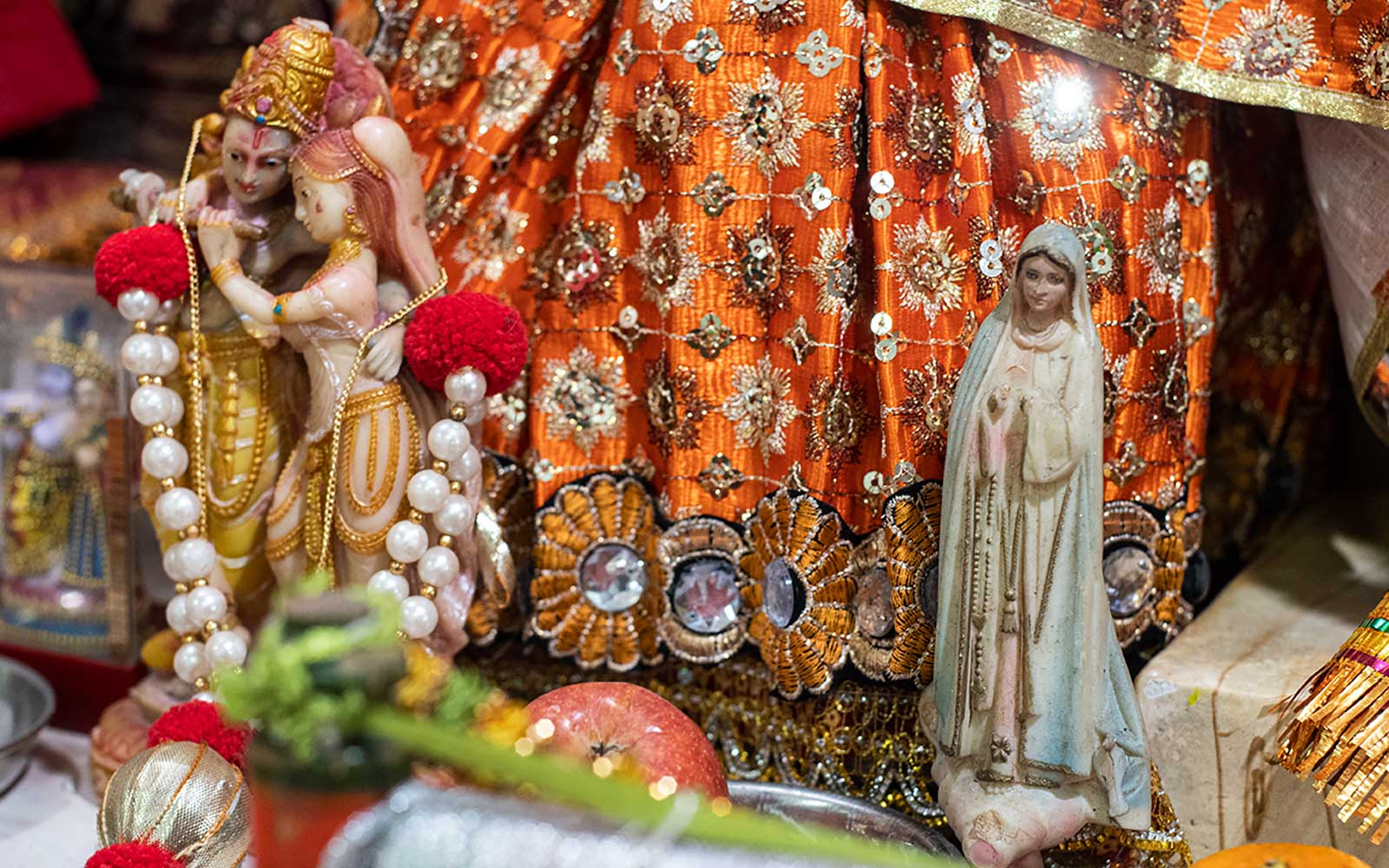
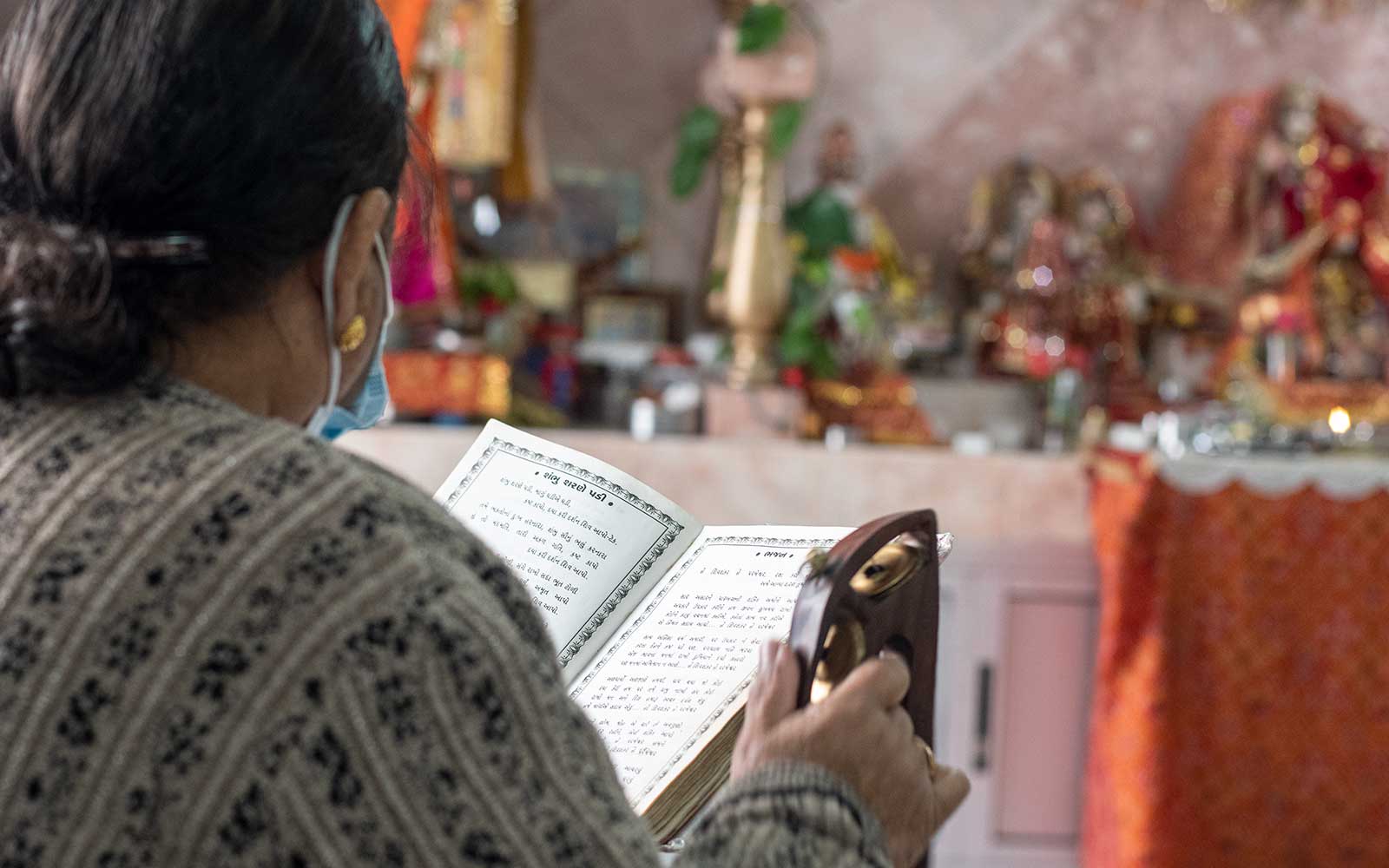
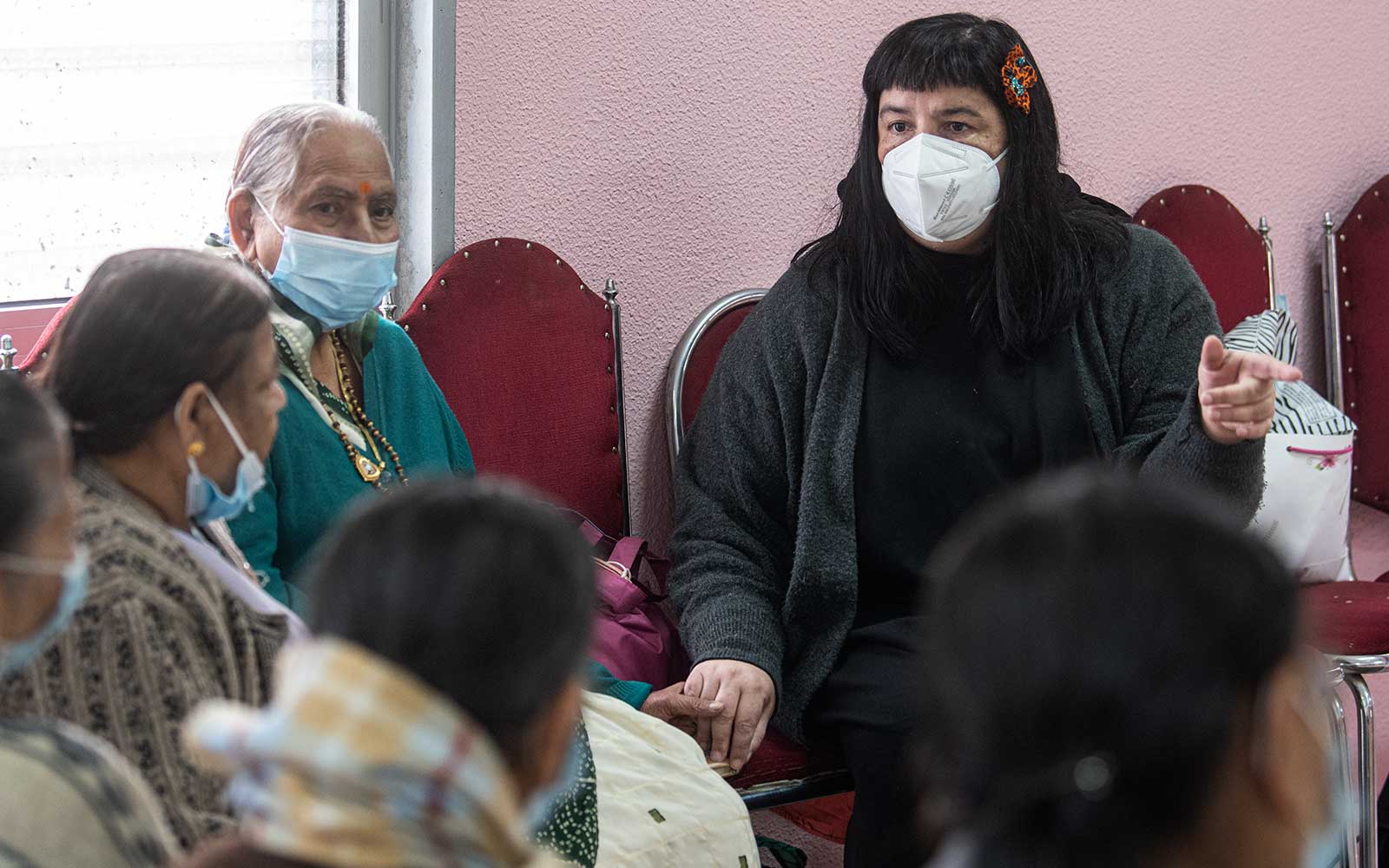
They offer fruit, rice, sweets and so many other things that they share at the end. They take a bag home with more masks and alcohol-gel. “Alexandra, what about that lady who is sick…?” If there were more bags, Alexandra would have handed them all.
The Gulbenkian Cuida project has come to an end. But it has left the Women without Borders Association with “the foundations for other ventures, which will involve new responses in the community”, guarantees Alexandra. “By believing in us, Gulbenkian gave us the confidence we needed and reinforced the belief that we’ve always had: community intervention is the answer par excellence and no one, regardless of their age, origin, nationality, gender or socio-economic condition, can be left behind”.
More info